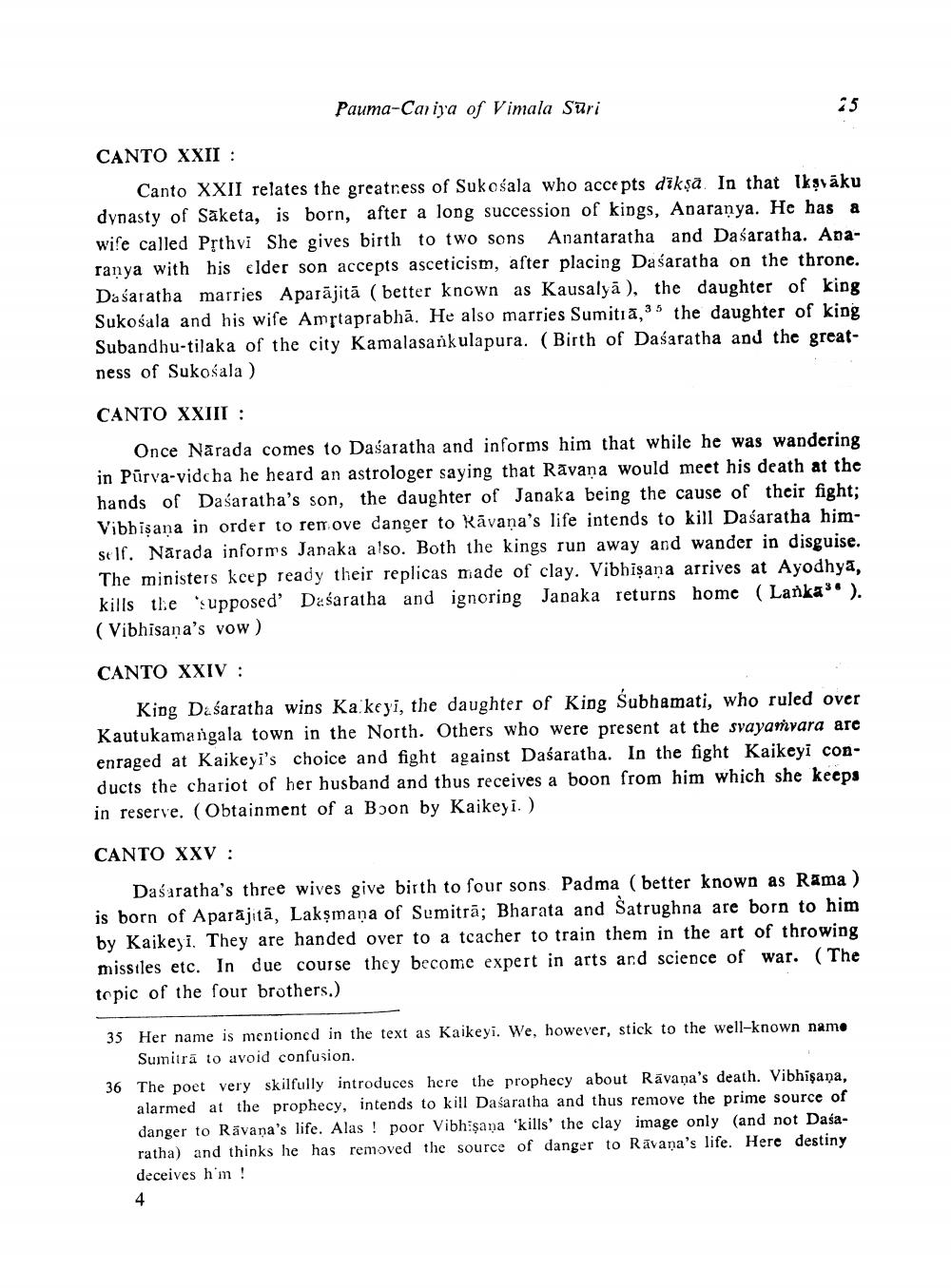________________
Pauma-Caniya of Vimala Sari
CANTO XXII :
Canto XXII relates the greatness of Sukošala who accepts dikşa. In that Ukşvāku dynasty of Säketa, is born, after a long succession of kings, Anaranya. He has a wife called Pythvi She gives birth to two sons Anantaratha and Daśaratha. Anaranya with his elder son accepts asceticism, after placing Dasaratha on the throne. Dasaratha marries Aparājitā (better known as Kausalyā), the daughter of king Sukošala and his wife Amstaprabhā. He also marries Sumitia, 3s the daughter of king Subandhu-tilaka of the city Kamalasankulapura. (Birth of Dasaratha and the greatness of Sukošala )
CANTO XXIII :
Once Nārada comes to Daśaratha and informs him that while he was wandering in Purva-vidcha he heard an astrologer saying that Ravana would meet his death at the hands of Dasaratha's son, the daughter of Janaka being the cause of their fight; Vibbişana in order to remove danger to Kāvana's life intends to kill Dasaratha himself. Nārada informs Janaka also. Both the kings run away and wander in disguise. The ministers keep ready their replicas made of clay. Vibhişana arrives at Ayodhya, kills the supposed' Dasaratha and ignoring Janaka returns home (Lanka' ). (Vibhisana's vow)
CANTO XXIV :
King Dasaratha wins Ka keyi, the daughter of King Subhamati, who ruled over Kautukamangala town in the North. Others who were present at the svayamvara are enraged at Kaikeyi's choice and fight against Dasaratha. In the fight Kaikeyi conducts the chariot of her husband and thus receives a boon from him which she keeps in reserve. (Obtainment of a Boon by Kaikeyi.)
CANTO XXV :
Dasaratha's three wives give birth to four sons Padma (better known as Rama ) is born of Aparajitā, Lakşmana of Sumitrā; Bharata and Satrughna are born to him by Kaikeyi. They are handed over to a teacher to train them in the art of throwing missiles etc. In due course they become expert in arts ard science of war. (The topic of the four brothers.)
35 Her name is mentioned in the text as Kaikeyi. We, however, stick to the well-known namo
Sumitrā to avoid confusion. 36 The poet very skilfully introduces here the prophecy about Rāvana's death. Vibhișana,
alarmed at the prophecy, intends to kill Dasaratha and thus remove the prime source of danger to Rāvana's life. Alas! poor Vibhişana ‘kills' the clay image only (and not Dasaratha) and thinks he has removed the source of danger to Rāvana's life. Here destiny deceives him!




